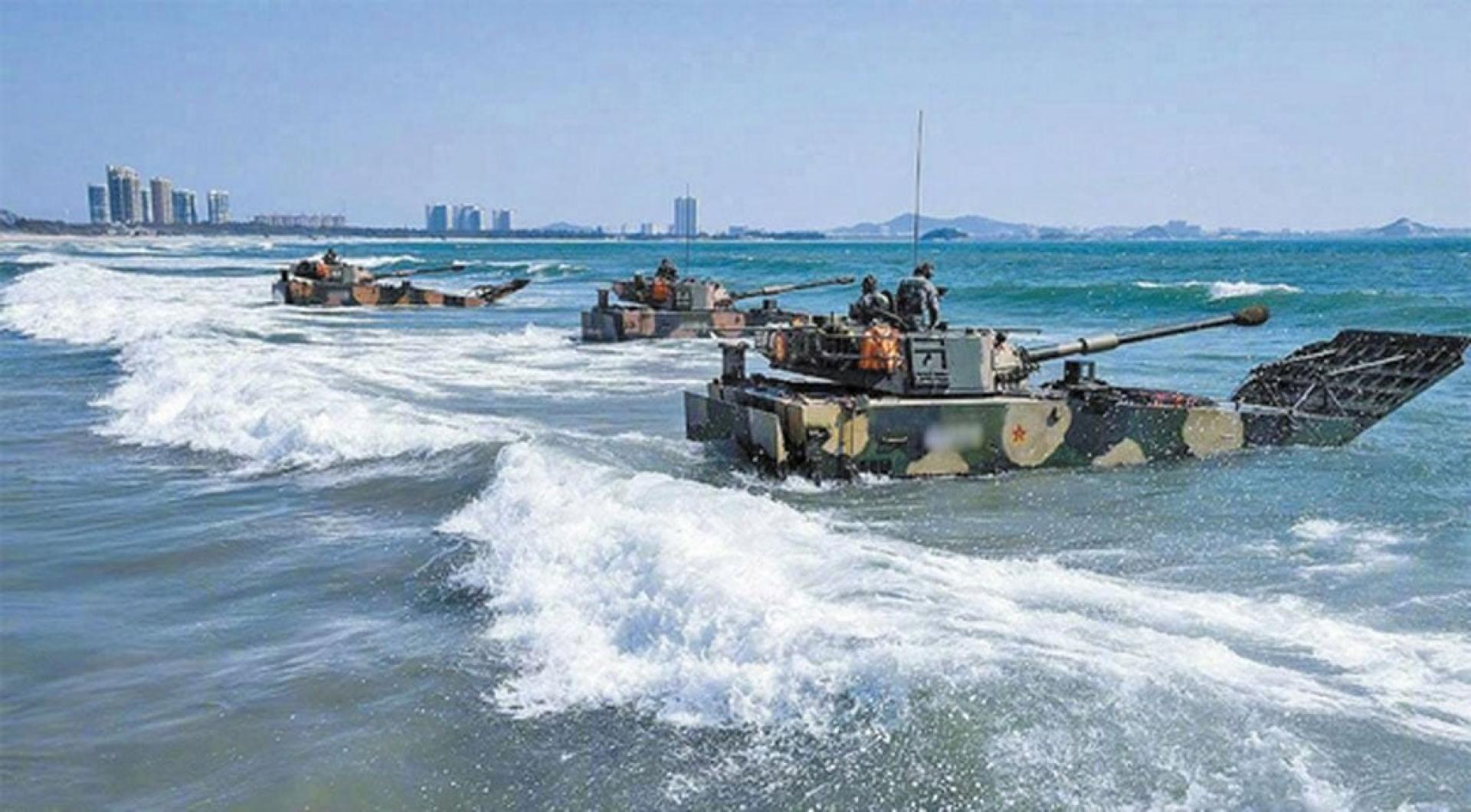US media reveals the world's five major powder kegs, with the Taiwan Strait now considered by international security experts as one of the most dangerous potential battlefields. Analysis points out that many outsiders believe Chinese President Xi Jinping sees 2027 as a 'timeline' to attack Taiwan, strengthening amphibious troops and real-combat exercises, viewing Taiwan as his unfinished business. If mainland China ultimately decides to invade Taiwan, whether or not the US will intervene in defense will not only affect the geostrategic map of the Asia-Pacific but may also force countries like Japan and South Korea to reconsider nuclear armament.
US political news site 'Politico' has identified five conflict hotspots: 'India and Pakistan,' which are closest to the threshold of nuclear war globally; the 'Taiwan Strait,' which could reshape the Pacific power structure; 'Russia and the Baltic States,' where hybrid warfare may test NATO's resolve; the 'China-India border conflict,' marked by a high risk of miscalculation; and the long-standing tension on the 'Korean Peninsula.'
Among these, the situation in the Taiwan Strait is described as 'the most fearsome invasion,' with Xi Jinping reportedly focused on conquering Taiwan. Just as the Baltics may become a litmus test for NATO, Taiwan is regarded as the key arena determining whether the US or China will lead the 21st-century global order.
The US has not signed a formal defense treaty with Taiwan, but for a long time has repeatedly signaled a 'commitment to assist in defense.' However, it remains uncertain whether President Trump, if re-elected, would uphold this commitment as previous administrations have. Wargaming by Washington think tanks also highlights concerns: if the US truly goes to war with China, its weapons stockpiles may not sustain prolonged conflict, and in just a few months, US military casualties could surpass the combined totals of the Vietnam and Korean wars.
If mainland China successfully seizes Taiwan, regardless of international opposition, it would immediately alter the geopolitics and alliance relationships in the Pacific. Southeast Asian and Pacific Rim nations, which have long relied on the US for security, might rethink whether the US or China is the real great power capable of safeguarding their economic and security interests in the long term. Furthermore, if Taiwan falls and US reliability is called into question, Japan and South Korea may be compelled to accelerate the development of nuclear weapons.
However, it is still unclear how much confidence Xi Jinping has in the PLA, but without a doubt, Xi has also drawn some lessons from Russia's dilemmas in invading Ukraine. Theoretically, the Russia-Ukraine war should have been easier and more manageable for Russia, given the Russian military's extensive combat experience compared to that of China.
In addition, mainland China holds multiple options short of direct invasion. Beijing may choose to impose blockades, tariffs, or other 'grey zone' tactics, with long-term effects potentially similar to occupation, but making it much harder for the US to decide whether to send troops. The question is: would Washington really be willing to pay the price of losing one or two aircraft carrier strike groups to break a blockade of Taiwan?
